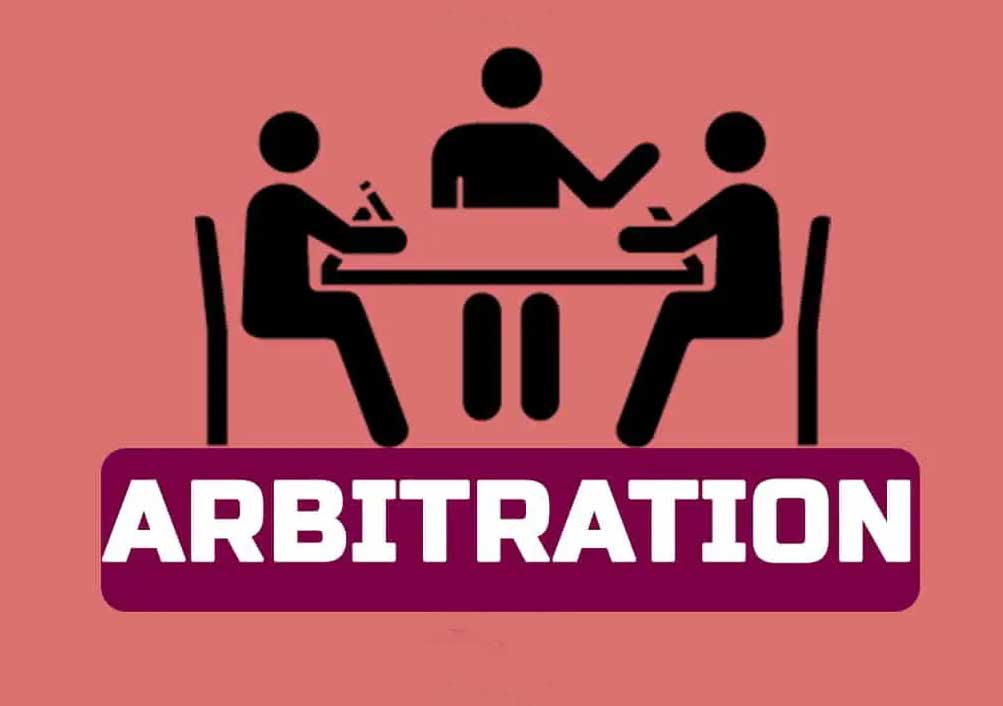In O.M.P(T) (COMM) 34/2022-DEL HC – Procedure u/s 13 of Arbitration Act to be followed while challenging Arbitrator’s appointment if his impartiality is doubted; Petition u/s 14(1) cannot be filed for same: Delhi HC Justice Vibhu Bakhru[29-03-2022]

Read Order: SACHEEROME ADVANCED TECHNOLOGIES (SAT) v. NEC TECHNOLOGIES PVT. LTD. (NECI)
Tulip Kanth
New Delhi, April 4, 2022: The Delhi High Court has held that the procedure under section 13 of the Arbitration and Conciliation Act, 1996 must be followed in order to challenge the appointment of the Arbitrator if his independence or impartiality is doubted or he does not possess the qualifications agreed to by the parties. A petition under Section 14(1) cannot be filed for such a challenge.
The Bench of Justice Vibhu Bakhru was of the opinion that the only recourse available to a party challenging the appointment of an Arbitrator under Section 13, is to await the arbitral award and if aggrieved, take recourse to the provisions as set out under Section 34.
The High Court was considering a Petition filed under Section 14 (2) praying that the mandate of the Sole Arbitrator be terminated. The disputes between the parties arose in the context of an Agreement.
On October 8, 2020, the petitioner had issued a notice under Section 21, invoking the Arbitration Agreement and called upon the respondent to concur on the appointment of an arbitrator. The respondent rejected the said request. Consequently, the petitioner filed a petition under Section 11 seeking appointment of an Arbitrator.
After the said petition was allowed, a Sole Arbitrator was appointed but he died. In these circumstances, the petitioner filed a petition under Section 14(1)(a) r/w Section 15 and the Court, then appointed Ms. Radhika Biswajit Dubey, Advocate as the Sole Arbitrator to adjudicate the disputes between the parties.
Herein, the petitioner was mainly aggrieved by the manner in which the Arbitral Tribunal had conducted the arbitral proceedings. It was averred in the petition that the Arbitrator did not make the complete disclosure as required under Section 12(1) at the time of accepting her appointment. She had, however, subsequently disclosed that she had worked as a junior to one of the senior counsels appearing for the petitioner. She had also worked with a law firm, which had subsequently split. After the split she thereafter, was associated with one of the resultant firms as a partner (not the firm representing the respondent). The other resultant firm was representing the respondent.
The petitioner’s counsel stated that the petitioner had not challenged the appointment of the Arbitrator and had participated in the arbitral proceedings. However, the Arbitrator’s inclinations were revealed subsequently. It was also contended that the Arbitrator’s “direct and indirect” contact and connection with the Law firms created a reasonable apprehension as to the independence and impartiality of the Arbitrator.
Justice Bakhru noted that the Arbitrator had made full disclosure at the first preliminary hearing which was prior to the Arbitrator receiving the Arbitral record. She had also recorded that none of the circumstances as disclosed fell foulof the Fifth or the Seventh Schedule to the A&C Act. Nonetheless she had made the disclosure for the comfort of the parties and the petitioner did not express any reservations and participated in the arbitral proceedings.
According to the Bench, the contention that the mandate of the Arbitrator stood terminated under Section 14(1) of the A&C Act, was unmerited. Justice Bakhru asserted, “It is well settled that a petition under Section 14(1) of the A&C Act cannot be filed to challenge appointment of the Arbitral Tribunal on grounds as set out under Section 12(3) of the A&C Act. Any party seeking to challenge the appointment of the arbitrator is required to do so in accordance with the procedure set out in Section 13 of the A&C Act.”
The Bench further added that the said challenge is required to be considered by the Arbitral Tribunal and in terms of Section 13(3), the Arbitrator could either withdraw from the office failing which the Arbitral Tribunal is required to decide the said challenge. Under section 13(4) , if the challenge is not successful, the Arbitral Tribunal is required to continue with the arbitral proceedings and make an award. In such circumstances, the only recourse available to a party challenging the appointment of an Arbitrator under Section 13, is to await for the arbitral award and if aggrieved, take recourse to the provisions as set out under Section 34, affirmed the Bench.
The High Court clarified that the only recourse available to the petitioner was to proceed with the arbitral proceedings and challenge the arbitral award under Section 34 as the petitioner did not make any application challenging the appointment of Arbitrator under Section 13. It had only filed an application styled as under Section 16 r/w Section 14(1)(a) and the Arbitrator, after considering the said application, decided the same.
Relying on the settled law in Progressive Career Academy Pvt. Ltd. v. FIITJEE Ltd. wherein it was held that a challenge would be permissible only under Section 34 after the award had been rendered, the Bench held that the contention that Section 14 provides a separate remedy available to parties to challenge appointment of an arbitrator, notwithstanding, the provisions under Section 13 of the A&C Act, was unfounded.
Considering the mitigating circumstances resulting from the outbreak of Covid-19, the Bench was unable to accept that the Arbitral Tribunal had not acted with due dispatch or there was any delay on its part. Imposing a cost of Rs 25,000, the High Court dismissed this Petition.
Sign up for our weekly newsletter to stay up to date on our product, events featured blog, special offer and all of the exciting things that take place here at Legitquest.




Add a Comment